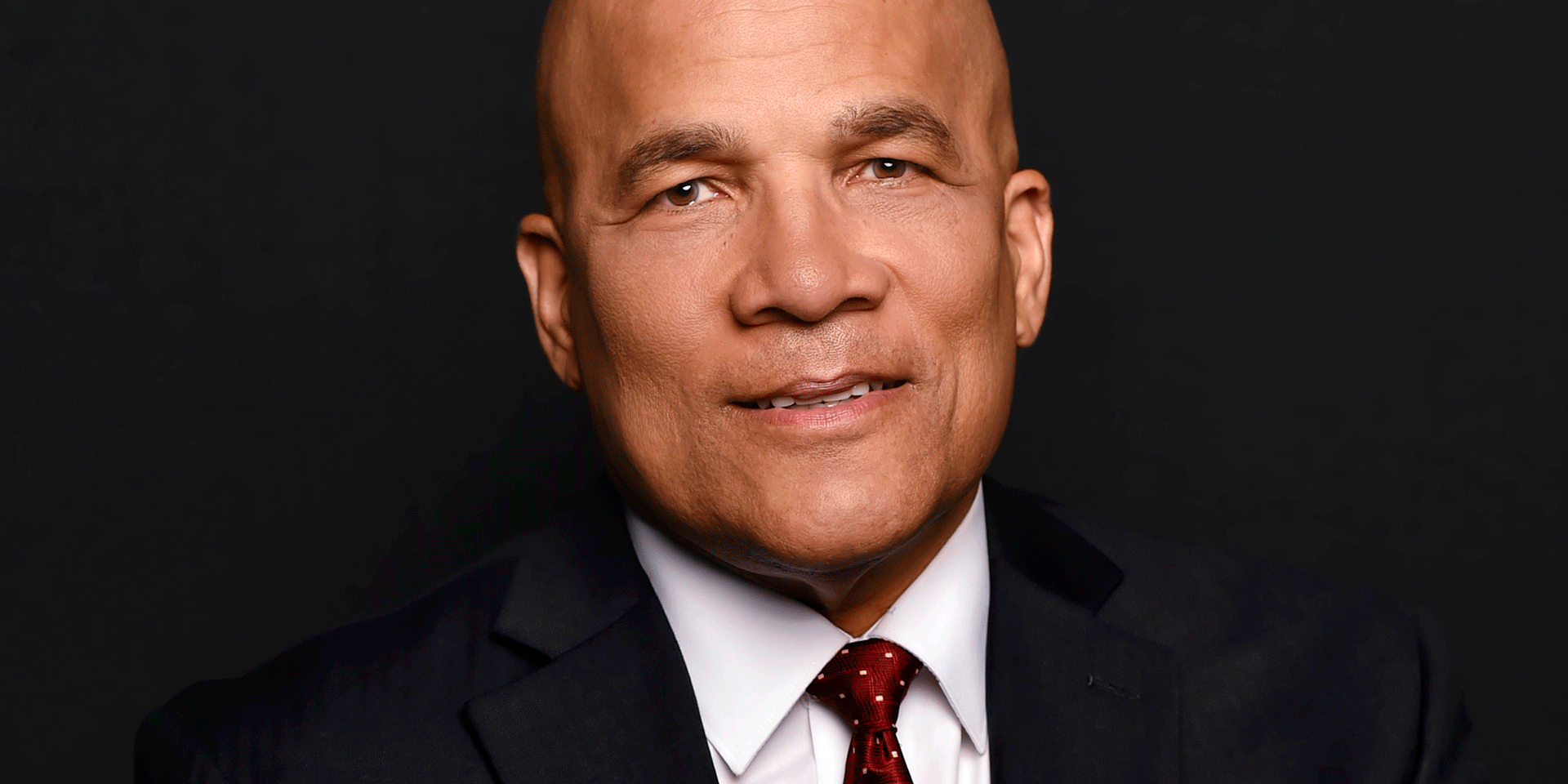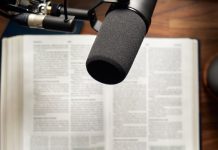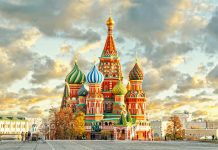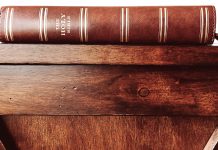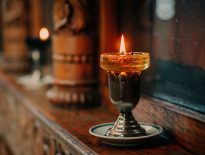Dr Delbert Baker is an African-American pastor, writer, teacher, and former president of Oakwood University in Huntsville, Alabama, a historically Black Seventh-day Adventist institution of higher learning. The conversation with Dr Baker took place in Nairobi, Kenya. With Kenya being the country of marathon runners, much of the discussion was about the races he participated in and their remarkable results.
Dr Baker, I have wanted an interview with you for many years. It is very interesting that this opportunity did not arise in America, but here, in Kenya.
It is a privilege to be with you.
Usually, I begin the conversations with my guests by talking about the beginnings of their lives. This time, however, I would like to begin the discussion with this new starting point for you, as you have recently accepted the invitation to be the president of the Adventist University of Africa. Tell me about this new beginning. I believe this is your first overseas assignment, correct?
It is.
What is it like to have a new beginning now?
Well, it is my first overseas assignment, but I have been to Africa probably 38 times. I have visited more than 30 countries on the continent because, during each part of my 40 years of ministry, I have found business to come here. During my first time here, I was a pastor in Dayton, Ohio.
I had always wanted to go to Africa. In fact, I had put a big map of Africa on the wall in my bedroom saying, “Lord, I want to go to Africa, I want to go to the motherland, I want to go there.” So, God answered my prayers in 1987 when I got a call from Zimbabwe.
Later, when I was an editor at the Message magazine—a Black Seventh-day Adventist magazine issued by Review and Herald Publishing Association in Hagerstown—I started a program called “Message to Africa,” in which we collaborated with African writers and shipped about three hundred thousand copies to Africa.
After I left the Message magazine, I worked for about a year at the Ellen G. White Estate, at the General Conference, and even there I worked very closely with topics related to Ellen White and black people in the southern United States and around the world.
Interesting.
There I only stayed for a short period of time because Dr Lyn Behrens, the president of Loma Linda University, called and asked me if I would come and spend time at Loma Linda.
Did you have the opportunity to go to Africa while working at Loma Linda?
I did; I did many trips then. Then, after Loma Linda, I went directly to Oakwood University and in my 14 years there I must have been to Africa probably ten times. So, at each moment of my ministry, I went there.
That gets us to the starting point. After Oakwood, I went to the General Conference for five years. After that, my wife and I asked ourselves where we would like to go after the General Conference.
We had many options, but the appeal of Africa and the Adventist University of Africa had a special calling to us.
You briefly told me a story about the very place we are in right now. Would you like to share that with us?
My wife and I were visiting the continent, doing some workshops and some meetings. We were in Nairobi, and we heard about the dream that Jan Paulsen, Matthew Bediako, Bob Lemon, Jeffrey Mbwana, and Blasius Ruguri—leaders of the Adventist Church—had about starting an Adventist seminary in Africa. So, I said, “This is so intriguing.” I was very much involved in that so we went to visit the site. This happened in 2004 or 2005.
At the time, you were the president of Oakwood University.
Yes. We drove here from Nairobi, and at that time, Maxwell High School was here, with the Maasai people around, and they were building the division offices of the regional Adventist organisation for Central and East Africa. We went to the site where the administration of the Adventist University of Africa is located. We stood there and I looked at that place and told my wife, “If there is one place I would leave Oakwood University for, I would like to come here to take part in this project.”
Fantastic!
And little did I know that a few years later I would be here. My ministry has always been linked to Africa. Back in 1988, Neal Wilson, the president of the World Adventist Church at that time, had a dream to have the Annual Council for the first time on the continent of Africa. So, it took place in Nairobi, Kenya.
On that occasion, Neal Wilson asked me to do a special study on Adventist missionary work in Africa. I approached this topic when I was working as an editor at Message magazine. And then he also asked me to write a book about the life of Samson Kisekka, who was a Seventh-day Adventist prime minister.
He was the Prime Minister of Uganda.
We called the book “From Exile to Prime Minister.” In 1988, I had a big meeting before which Neal Wilson, Ted Wilson, William Johnsson, myself, and two others climbed Mount Kilimanjaro.
Fantastic!
I am telling you all this to show that my starting point at the Adventist University of Africa was shaped by my frequent trips to the African continent. In 2015, when I was in a transition period, trying to decide which path to take next, I had a number of work options in the United States, and also a couple of overseas offers. In fact, the North-American division almost thought I was going to take one.
They even quasi-announced it. But then they said that there was this school, where Brempong Antwi had done a great job as the vice-chancellor but had decided to leave, so they asked me, “Would you consider this position?” I said yes. I remembered at that time that many years previously I had told myself that I might come back here.
However, I must confess that it was a difficult decision because we had to leave the United States, leave behind our home and everything that we knew to move to another country, but my wife and I said: “This is what the Lord is leading.”
I am a strong man who believes in providence, meaning the guidance of God in everything we do, so I said: “Lord, we prayed to You about this, so this must be Your will.” And that was my starting point at AUA and I’ve come here and the people have been so receptive. Now, a year after we arrived in this place, we are convinced that God, in his plan, worked it out for us to be here.
In this new starting point in your life, what do you want to achieve here at the university during your term?
I recall when I went to Oakwood many years ago, in 1996, when I first went there, the people there asked me, “What is your vision for Oakwood?”
I learned then what I put into practice even now, not to come to a vision quickly, not to rush in this regard, so, to answer your question, coming to AUA, my goal is to look, listen, learn, and then lead.
I see.
So, coming here, I have made it a point to just look at everything, just like Nehemiah did when he looked at the walls, in the book of Nehemiah—to look and to listen to the people here, and to talk to them. I have sat down and talked to every faculty member, every staff member, no matter what their position is.
I’ve talked to all the University Council members, the officers at the East Central Africa Division, and even with the principal of Maxwell High School, Marc Nelson; I talked to everyone, to ask: “What is your perspective on this university? How do you see the school? What are some of the unique needs, challenges, and opportunities related to this educational institution?”
And everyone here was very kind and very helpful in terms of giving me the information I wanted, and now I’m at the point where I can better begin to conceptualise the goals for our university. Last week we had a one-day retreat, which we spent at the Nairobi National Park. We spent all day brainstorming about what the members of the faculty and staff see for the school, and I can now say that we have reached a broad perspective that is taking shape and becoming clearer in my mind.
However, rather than trying to say exactly what it is, I will say the following: We have a number of values. My first priority is to build relationships. I would like the Adventist University of Africa to be one of the best places a person can work at.
I set out to raise funds for the school and God has already made it possible in rather remarkable ways. Before I left for the AUA, I said to two friends of mine in the United States, “I’d like to drop by your home.” This is an older, white couple who live in the South, donors of ours at Oakwood University, so I said to them, “I want to come by and talk to you about the Adventist University of Africa.”
You won’t believe what happened after that. I went to their house on a Sunday. I had my computer with me, and I showed them a PowerPoint presentation about AUA. At the end of the presentation, we told them that we would like to build scholarships and do outreach in the area, so my friend asked, “What can we do for you?” I was a little surprised that he was so open. He had given before.
He had helped me before, but I figured that maybe I should ask for a small amount of money. But I saw that God was leading. So, I gave him a large figure. I will never forget this. His wife, who was sitting next to him and who is a wonderful lady–they are over 80–said to me, “Oh, Dr Baker, my husband gives me a little money that I can give to worthy projects. I like this project. I will go write a check for $100,000 right now.” So, she jumps up and runs to get her chequebook.
I said to her husband: “Maybe you could give this much per year, since I will be there on a five-year term.” My friend listened and then said, “Well, Delbert… I don’t make commitments like I did before, considering my age. But what if I write you a check today for $500,000?” And I said: “Praise God! What a wonderful blessing!”
Then he did it. I had two checks. This is the first time I said it publicly in a setting like this, but I think this is a blessing that shows that God is involved in the program. When we left, my wife and I stopped by the side of the road and prayed. Then I reached in my pocket and pulled out the checks to make sure they were valid, and they were, so we were able to start the student scholarship program.
Most of the money is allocated to scholarships, because we want to be able to bring to the AUA students who are from countries that are not represented here. We have about 30 countries that are represented in the Adventist University of Africa, but about 20 countries are not, so we want to sponsor students to come, and we want to help non-sponsored students.
Also, we have a real desire to establish the infrastructure, to make a tight, working infrastructure. Then we would also like to do some assertive, aggressive work with online education. In light of the fact that the Adventist University of Africa serves all three divisions on the continent, maybe some people can’t be here but, if we have a good and strong online education program, they can interact from wherever they are.
Then, we want to develop new academic programs. For example, we want to offer a PhD course in Leadership, which is a big deal because AUA only offers graduate programs. We want to be the best that we can be.
It’s all about training men and women for ministry on the continent. In the ten years of the university’s existence, we have produced around 450 graduates. They are now working either at the General Conference, in the divisions, or unions, or as pastors, thus contributing to the advancement of the mission and I praise God for that.
Even if we don’t like it, education costs money. You now have financial responsibility for a university and many students. Besides visiting generous friends, what else have you done to raise money for education?
I run marathons. I started in 1988. I’ve run a total of 54 marathons, and my goal was to run in each of the 50 US states, but I’ve only done 36 so far. I have a few more to go. When I was in Oakland, I needed to set a goal that I could complete. The goal was to run marathons on all seven continents and so I raised money.
How do you raise money by participating in marathons, knowing that you have to pay a fee and there are quite a few other expenses?
Here’s a great principle for your readers—I think that anyone who has a project, and has a dream to achieve can do it, with the help of those around. My dream was to raise money, I wanted to be helpful, and set a good example for the students. I knew that I had limited funds. My wife said to me, “Delbert, if you’re going to be crazy enough to do marathons, running 42 kilometres, that’s a long distance…”
As a physical therapist, I would imagine she didn’t approve of you running such a long distance.
She knew that I loved it, so she said, “At least raise money while you’re doing it! “
How did you manage to raise the money?
I contacted the development department at Oakwood. They told me we’ll get sponsors. For every mile I would run, people would pay. And all the money would go to the school. I also knew that Oakwood may not be so keen on the idea of paying money for me to fly around the world to run marathons.
So, I worked it out with the Adventist hospital in Florida and asked them: “If I run under your logo, ‘CREATION Health,’ will you pay for the expenses?” And they said, “Fine.” And so, I wore their logo and they paid for all my races. I didn’t go to the school for help, and I set a good example. We have a group of students on the campus who we train every year, and they would also run with me and be health models. So, we tried to set an example for the campus.
I remember the first race I raised $3,000, so I thought, “I can make some money with this.” Then, we went to $10,000. Then, we had a company that sponsored us with $1,000 per mile. $26,200 for a marathon. Then I began to run the continents. I did Australia, Europe, and Africa, and then I did South America, in Santiago de Chile.
At a high altitude. Did you feel any difference?
Absolutely, the altitude makes a big difference. So, I had to prepare in different ways for different races. Then I knew I had to run the South Pole. On the way to the South Pole, the “bottom” of the world, I went to Santiago, in Viña del Mar, and then a week later, I ran in the South Pole.
I got to a point where I was running so many marathons that I could do multiple in a row. I could do two marathons in a week. It was almost like second nature to me. My best year was 2008. I ran 13 marathons then. I would never do that again, never did it before, never did it afterwards, but I did that many. I think I raised about $200,000 in 2008.
At the South Pole marathon, which was also in 2008, I raised $85,000 and I thought, “This is fantastic!” Then I did all seven continents. Running these marathons, the people told me, “Listen, Baker, if you’ve done seven marathons, to really be good, to do the ultimate record, is to do the Grand Slam, which is running the North Pole marathon.” The North Pole is not a continent, and the marathon takes place on a slab of ice that stays solid only three months a year.
I had read that you ran the North Pole marathon, and I thought it must be a mistake because I wondered what could be run there.
It was very expensive. They fly you to Longyearbyen, Norway. And then from there, you jump over to a special plane that takes you to that slab of ice. We did it at the beginning of December, and we had to do everything quickly because in January the ice starts cracking. It eventually goes away.
They have a four-mile course and you run around until you get to the 26th mile. It was the hardest marathon of all. I was almost hallucinating because of the cold. The temperature was 32 degrees below zero and I began to see things. I thought I saw angels, and horses, I even thought I saw my wife. So, I knew I was hallucinating. But it was an incredible race.
But more impressive than the fact that I participated in this marathon was the fact that there was a man there from England, Oscar, who had fought in the Falkland War and lost his sight. His BHAG (Big Hairy Audacious Goal) or bucket list item was to run the North Pole. But he couldn’t see.
So, he got a friend of his who ran the race with him. I have a picture of the two of them using a rope, the end of which the blind man was holding onto, and that’s how they completed the race. I was very inspired by him; if he could do it, anybody could and should do it.
Pastor Mark Finley told me, “Delbert, when you do all these races, especially the South Pole and the North Pole, you ought to finish with the Bible.” He told me to take the Bible with me! If you see the picture in the Adventist Review, when they show me running at the South Pole, I have a Bible with me.
I’ll summarise by saying that ministry is like an adventure. My ministry has been an adventure. When Christ talked to Nicodemus, He said to him: “The Holy Spirit is like the wind, no one knows where it’s coming or going.” I think that’s how our life is, and if we live our life in Christ and trust God, He will take us where He wants us to go.
This is the best conclusion to our conversation, and I would like to add that I can’t wait to interview you again!
Note: This is a TV interview by Adrian Bocaneanu, broadcast on HopeTV channel Romania. The transcript of the interview has been edited for brevity and clarity. You can watch the full version here.












